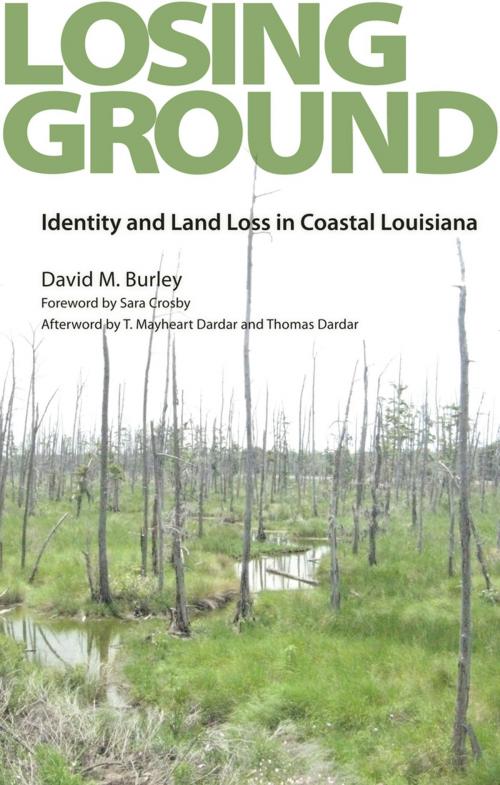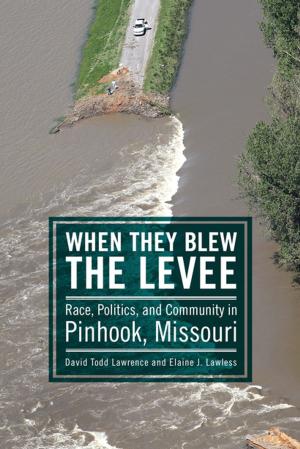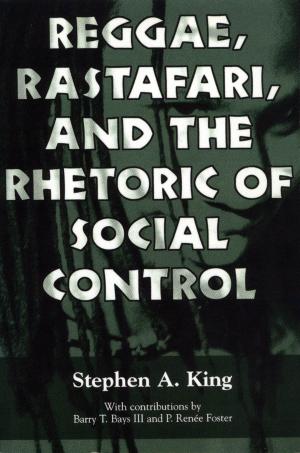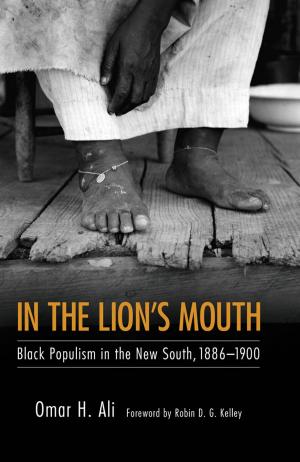Losing Ground
Identity and Land Loss in Coastal Louisiana
Nonfiction, Science & Nature, Nature, Environment, Environmental Conservation & Protection, Social & Cultural Studies, Social Science, Sociology, History, Americas, United States| Author: | David M. Burley, T. Mayheart Dardar | ISBN: | 9781604734898 |
| Publisher: | University Press of Mississippi | Publication: | April 26, 2010 |
| Imprint: | University Press of Mississippi | Language: | English |
| Author: | David M. Burley, T. Mayheart Dardar |
| ISBN: | 9781604734898 |
| Publisher: | University Press of Mississippi |
| Publication: | April 26, 2010 |
| Imprint: | University Press of Mississippi |
| Language: | English |
What is it like to lose your front porch to the ocean? To watch saltwater destroy your favorite fishing holes? To see playgrounds and churches subside and succumb to brackish and rising water? The residents of coastal Louisiana know. For them hurricanes are but exclamation points in an incessant loss of coastal land now estimated to occur at a rate of at least twenty-four square miles per year.
In Losing Ground, coastal Louisianans communicate the significance of place and environment. During interviews taken just before the 2005 hurricanes, they send out a plea to alleviate the damage. They speak with an urgency that exemplifies a fear of losing not just property and familiar surroundings, but their identity as well.
People along Louisiana's southeastern coast hold a deep attachment to place, and this shows in the urgency of the narratives David M. Burley collects here. The meanings that residents attribute to coastal land loss reflect a tenuous and uprooted sense of self. The process of coastal land loss and all of its social components, from the familial to the political, impacts these residents' concepts of history and the future. Burley updates many of his subjects' narratives to reveal what has happened in the wake of the back-to-back disasters of Hurricanes Katrina and Rita.
What is it like to lose your front porch to the ocean? To watch saltwater destroy your favorite fishing holes? To see playgrounds and churches subside and succumb to brackish and rising water? The residents of coastal Louisiana know. For them hurricanes are but exclamation points in an incessant loss of coastal land now estimated to occur at a rate of at least twenty-four square miles per year.
In Losing Ground, coastal Louisianans communicate the significance of place and environment. During interviews taken just before the 2005 hurricanes, they send out a plea to alleviate the damage. They speak with an urgency that exemplifies a fear of losing not just property and familiar surroundings, but their identity as well.
People along Louisiana's southeastern coast hold a deep attachment to place, and this shows in the urgency of the narratives David M. Burley collects here. The meanings that residents attribute to coastal land loss reflect a tenuous and uprooted sense of self. The process of coastal land loss and all of its social components, from the familial to the political, impacts these residents' concepts of history and the future. Burley updates many of his subjects' narratives to reveal what has happened in the wake of the back-to-back disasters of Hurricanes Katrina and Rita.















